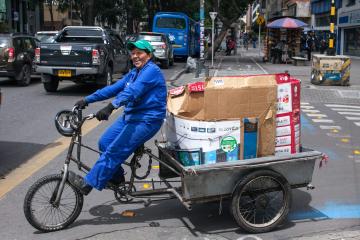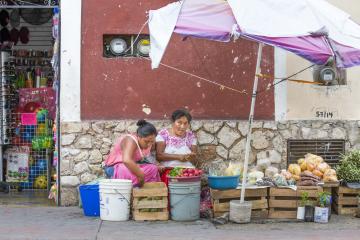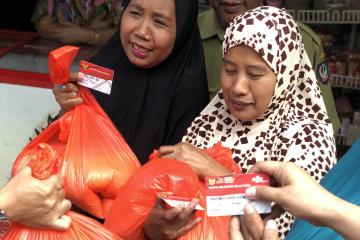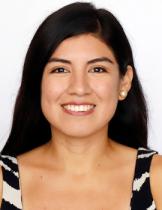
Reflecting on a year working for gender equality in LAC

One of J-PAL Latin America and the Caribbean (LAC)’s priorities is to advance rigorous evidence on effective approaches to improving gender equality in our region. This effort encompasses research and policy engagement on different topics with a direct influence on women’s lives, ranging from the prevention of gender-based violence to the promotion of economic agency among women. As we approach the end of 2022, we reflect on lessons learned and emerging priorities.
Generating new evidence in the region
The first step to advance gender equality is to understand the specific problems that women face in different settings and how to address them. Rigorously evaluating how different programs impact women’s lives—either intended or not—improves our understanding and helps policymakers deliver better solutions that are tailored to the local needs.
An important milestone in the gender agenda in LAC was the announcement of the availability of Gender and Economic Agency (GEA) Initiative research funds. Through GEA, we seek to bring together researchers and policymakers interested in contributing to evidence-based policymaking. After many years of J-PAL LAC’s staff highlighting the importance of evidence and a year of actively incubating projects in the region, two full projects, one pilot, and one project development are being funded by the initiative.
Beyond economic agency, we have also worked on reducing gender-based violence. Together with the Women’s Secretariat of Mexico City (SEMUJERES) and J-PAL affiliated professors, we have run a collaborative effort to design and pilot an intervention to reduce intimate partner violence and prevent femicide.
In addition to incubating, carrying out, and funding new research, it is important to provide researchers with the right tools to carry out research on women’s well-being. Designing a measurement strategy that accurately captures empowerment changes in a given setting and minimizes bias can be challenging. Furthermore, local context, language, and cultural norms are important to consider when measuring empowerment. To help address these needs, we translated J-PAL’s Practical Guide to Measuring Women's and Girls’ Empowerment in Impact Evaluations into Spanish and adapted it to the LAC context.
Sharing evidence and building capacities
At J-PAL, we translate research into action, promoting a culture of evidence-informed policymaking worldwide. To do so, we carry out policy outreach and trainings to help governments, NGOs, donors, and the private sector apply evidence from randomized evaluations to their work around gender.
Our outreach activities in 2022 included three public webinars. In the first one, we launched the guide for measuring empowerment and shared relevant evidence for Central America and Mexico on the topics identified as priorities by the GEA Initiative. In the second webinar, which was part of gLOCAL Evaluation Week 2022, J-PAL affiliate Natalia Rigol (Harvard Business School) shared lessons on a program that gave women control of their finances through bank accounts and training. The last webinar focused on lessons to promote women's economic agency applicable to the context of Central America, Mexico, and Colombia and presented one of the projects funded by GEA: Gender norms, labor supply decisions of couples, and flexibility in working conditions in Colombia.
For International Women's Day earlier this year, we launched a series of four publications with evidence and learning on key issues to promote gender equality in Latin America and the Caribbean. The first and second blog posts presented promising strategies for addressing intimate partner violence and the microenterprise leadership gap. The third article highlighted some lessons from the collaboration we have been developing with the Ministry of Women and Vulnerable Populations of Peru (MIMP) and Innovations for Poverty Action (IPA) to confront gender violence in Peru. We also discussed the limits and possibilities of some cash transfer programs to improve the welfare of women.
Finally, we carried out two several-day trainings for civil servants in Mexico focused on building capacities through understanding what randomized evaluations are and how they are designed and used. In addition, during the training, participants worked on the operationalization of instruments for measuring complex concepts and reviewed the guide for measuring empowerment.
The road ahead
The high attendance of our webinars and the numerous proposals that GEA received from various countries in the LAC region demonstrate the unsatisfied demand for research in these areas. Consequently, GEA will continue to support the generation of evidence on women's economic agency while also attempting to increase its geographic reach. We are seeking forward-looking funding partners to enable robust, policy-relevant research and unlock scaling opportunities.
At the same time, the recent partnership with Co-Impact and Community Jameel will promote the development of alliances with national and local governments to fight poverty and gender inequality, since they are primary actors in reaching millions of lives in low and middle-income countries. The work will focus on seven countries worldwide, and the priority countries in LAC are Brazil and Mexico.
To learn more about J-PAL LAC’s work, Gender and Economic Agency (GEA) Initiative, and explore opportunities for collaboration, visit the GEA page or contact us at [email protected].
Related Content

Gender and Economic Agency Initiative increases funding to Latin America and South Asia with third funding round

The importance of evidence in promoting the economic agency of women in Central America and Mexico


